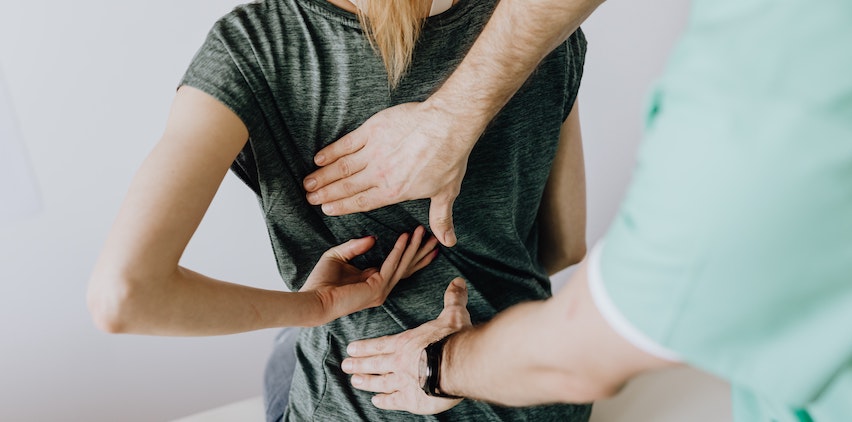

March 15, 2021 | Categories: Health
Many would agree that 2020 has done a number on the world’s physical and mental health, but is it fair to say that the challenging environment could result in stress and back pain? If you’re experiencing some back pain stress right now, you know that the answer is yes.
Biologic processes and environmental factors combine to cause a physical reaction to stress, says Benjamin Bonte, M.D., board certified physical medicine & rehabilitation physician at Hudson Medical + Wellness in New York City. “This can result in a disruption in our status quo, affecting our ability to follow our diet, get enough sleep or exercise, or to engage with our social support networks; each of these disruptions can worsen pain, including back pain.”
Here are some ways the compounding worries of a particularly difficult year could cause those stress and back pains you’ve been feeling since early 2020.
You’d be hard-pressed to find someone who didn’t experience some level of anxiety in 2020. With endless news channels putting the fear of death in us if we left our homes, picked up the mail, or that we’d kill loved ones with a hug, anxiety was an emotion circling through many of our systems in 2020.
“It is important to remember that negative feelings and emotions like sadness, depression, anxiety, and guilt are all normal and healthy responses to stress in life and don’t necessarily signify a mental health disorder,” says Dr. Bonte. “If our mental health is impacted and we are struggling to deal with this, this can physically manifest as increased muscle tension, spasms, and a decreased threshold for pain.”
Being in a state of constant stress or chronic stress causes muscles to be tense and taut for an extended period, which can lead to back pain as well as headaches, according to the American Psychological Association.
The mind and the body are connected and it is well documented that psychological diagnoses such as depression and anxiety can make back pain stress worse. The inverse is also true; an increase in pain can worsen symptoms of depression and anxiety, says Dr. Bonte. “A holistic approach to mental health and spine care is important when addressing back pain, particularly in people who have psychiatric diagnoses.”
Raise your hand if you experienced some loss of sleep this year over worries about the coronavirus, your finances, your family’s health, the election, civil unrest and riots, fires, natural disasters or any of the other awful circumstances that plagued the United States and the world this year. Once you’ve all put your hands down, you might be interested to learn that poor sleep or short sleep could impact your back health. (Related: Here’s How Your Sleep Position Impacts Your Health)
Sleep is critical for the recovery of our cognitive processes as well as for the recovery of our skeletal tissue, Dr. Bonte says. “When this is disrupted, it means that we might make more mistakes or take longer to perform the same tasks. Particularly in people whose job involves higher degrees of physical effort, this can lead to mistakes which may lead to injuries.”
That being said, we understand that when you’re experiencing back pain, it can be harder to fall asleep or stay asleep. If you have back pain or chronic pain, you probably already know what studies have shown–that poor sleep is associated with a higher risk of pain the next day. Getting adequate sleep can help you manage stressors better and possibly reduce overall pain.
Heard of the “quarantine 15”? If you swapped your healthy diet and fitness routine for biceps curls that involved pizza, sourdough bread, sweets and booze, you may have experienced some weight gain this year. And while a few extra pounds might not seem like that big of a deal–unless you’re the seam on a pair of pants–a poor diet could cause inflammation that leads to pain. Not only does an unhealthy diet eventually impact your mood, but also it increases proinflammatory responses to stressors, which cause inflammation in the body.
Certain foods that are high in sugar or with high glycemic index–like pizza, pasta and bagels — are likely to cause spikes in blood sugar which can lead to adipose (fatty) tissue formation, says Dr. Bonte. “Some data show that inflammatory markers are elevated with increased adipose tissue. Furthermore, additional weight is additional stress across our bones, intervertebral discs, and ligaments, and can make back pain worse.”
Read the full article on Spine Universe.
Leave a Reply